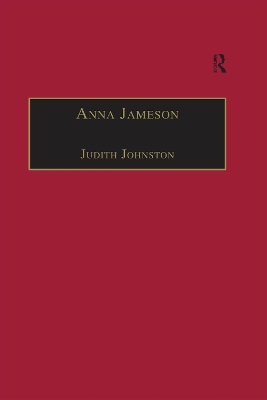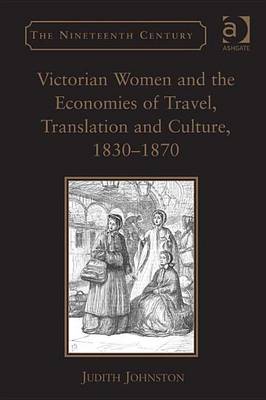The Nineteenth Century
2 total works
Anna Brownwell Jameson (1794-1869) was a central figure in the London world of letters and art in the early Victorian period, and an important feminist writer. Her friends included such figures as Harriet Martineau, Lady Byron, Robert Browning and Elizabeth Barrett Browning. This study considers her life and works, using a different Jameson work as the central focus of each chapter. The author considers the particular non-fiction discourse in which the work is written, as well as such issues as gender and colonialism. Arranged chronologically, the book also charts the growth and development of a determined feminism in the vital years of the early Victorian period, and compares Jameson to her contemporaries.
Victorian Women and the Economies of Travel, Translation and Culture, 1830 1870
by Judith Johnston
Published 1 January 2013
Both travel and translation involve a type of journey, one with literal and metaphorical dimensions. Judith Johnston brings together these two richly resonant modes of getting from here to there as she explores their impact on culture with respect to the work of Victorian women. Using the metaphor of the published journey, whether it involves actual travel or translation, Johnston focusses particularly on the relationships of various British women with continental Europe. At the same time, she sheds light on the possibility of appropriation and British imperial enhancement that such contact produces. Johnston's book is in part devoted to case studies of women such as Sarah Austin, Mary Busk, Anna Jameson, Charlotte Guest, Jane Sinnett and Mary Howitt who are representative of women travellers, translators and journalists during a period when women became increasingly robust participants in the publishing industry. Whether they wrote about their own travels or translated the foreign language texts of other writers, Johnston shows, women were establishing themselves as actors in the broad business of culture. In widening our understanding of the ways in which gender and modernity functioned in the early decades of the Victorian age, Johnston's book makes a strong case for a greater appreciation of the contributions nineteenth-century women made to what is termed the knowledge empire.

